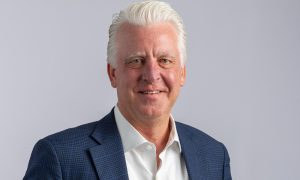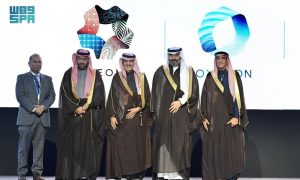Trailer blazing
Utah’s dry, unforgiving Bonnefield Salt Flats have seen the landspeed record broken 11 times. While Brits Richard Noble and Andy Green have moved the record set by Gary Balbelich in Rocket in 1970 to Nevada’s Black Rock Desert, Utah remains the romantic race track for those wanting to push the very limits of vehicle design. […]

Utah’s dry, unforgiving Bonnefield Salt Flats have seen the landspeed record broken 11 times. While Brits Richard Noble and Andy Green have moved the record set by Gary Balbelich in Rocket in 1970 to Nevada’s Black Rock Desert, Utah remains the romantic race track for those wanting to push the very limits of vehicle design.
On 27 April, Boije Ovebrink attempted to set a new record with his Volvo Mean Green hybrid truck in the state.
The Mean Green includes a highly-tuned Volvo D16 engine and a modified version of the company’s automated I-Shift gearbox, the same you will find in its FMX range.
Using both the diesel and electric motors, Mean Green is capable of pushing a hefty 2,100hp with nearly 6,800Nm of peak torque. Mean Green isn’t just sheer grunt either and its bodywork features the sort of aerodynamics Sebastien Vettel would be proud of.
Ron Huibers, Volvo’s recently appointed president of North American sales and marketing, calls the truck a prime example of Volvo’s technical capabilities.
“Technology and innovation are at the core of our business,” he said at its launch. “Our engineers developed the world’s fastest hybrid truck utilising the same Volvo hybrid drive system powering hundreds of Volvo buses throughout the world – including London’s double-decker buses.”
“The result is a lightning-speed boost from start-off without any of the customary diesel-engine delay,” explains Boije Ovebrink, Mean Green’s owner and driver. “It’s like a champagne cork, but without the sound effects. For the first couple of seconds the truck just makes a slight whistle until the diesel engine, which runs on renewable liquid rosin diesel, starts delivering with an explosive force.”
Landspeed records, like other cutting edge escapades such as Formula One and Space Missions, do not always deliver technology that helps us stuck in the slow lane. But Volvo is making a point, this is technology that has a clear benefit. Volvo is not transfixed on speed either. It recently demonstrated its Volvo Enhanced Stability Techology (VEST) and VEC cruise control system (alongside i-shift) in Abu Dhabi, both of which have been in the market for some time have yet to get momentum in the Middle East. It’s not just a frustration for Volvo. Most of the OEMs now have safer and more advanced trucks but in a market where it has not been either a requirement or a concern, they face a barrier to introducing them. They will need the assistance of local authorities and perhaps there is hope that some of the more forward-thinking organisations such as Dubai’s RTA can spur demand.
The market for commercial vehicles in the UAE will saw double digit growth in 2012, building on the 15% growth, 2500 trucks per day, in 2011, according to Emirates Money. The RTA has piloted some of the world’s most advanced vehicle technology across the UAE and Middle East, through fitting heavy vehicles with two systems; the first tracks vehicles movement and the second reveals the conditions of tires. The new technology was fitted to 40 trucks with the aim of ensuring its road safety and its role in minimising traffic accidents.
Ahmed Bahrozyan, CEO of the RTA said: “The application of these systems is important as they continually promote road safety and reduce the resulting traffic fatalities. The RTA would also apply these systems on all heavy vehicles in the future.”




















